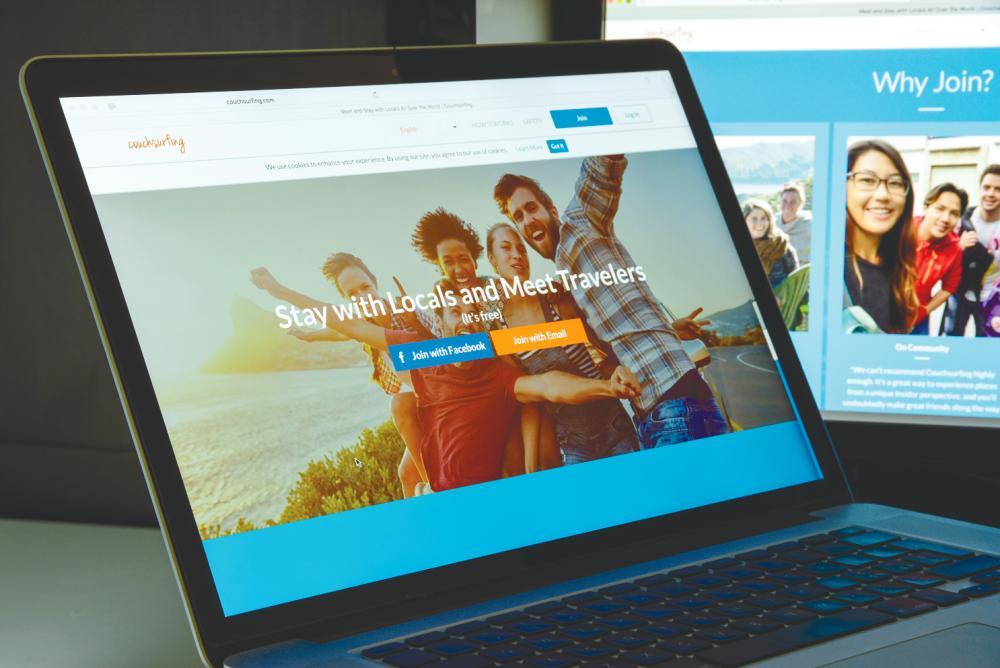AS tourism, the country and the world rapidly begins to open up, the last one year and eight months has made it feel like aeons have passed, and a return to complete normalcy seems impossible.
For travellers in general, there are now stringent rules to follow in order to contain the possiblity of the virus being brought by them to wherever they are travelling.
For a specific group of travellers from the more shoestring budget variety, travel in the post-Covid world is going to be a bit more of a challenge.
In a conversation about travelling on a shoestring budget, it is impossible not to bring up what is considered the godfather platform of cheap travel, Couchsurfing.
With a reported community of 14 million hosts and travellers in 200,000 cities across the world, Couchsurfing has been long been the go-to destination when it comes to planning and executing travelling on a shoestring budget, particularly for solo backpackers seeking to momentarily crash at a stranger’s house as part of a longer journey elsewhere.
This evidently all changed with Covid-19. Suddenly, the idea of someone from a foreign land stopping at your house to spend the night carried a viral air of danger.
Viable option for cheap travel
Launched in 2004, Couchsurfing works almost exactly how it sounds; travellers would link up with hosts in the former’s destination city or country, where hosts would offer them temporarily lodging on as part of their travel, free of charge.
Sometimes, there may be an agreement to help out around the host’s home and so on.
The entire experience of couchsurfing also varies from contemporary travel as travellers are essentially bound to share unique experiences with hosts, as they experience a form of travel that is not “Go here, check in to hotel, go around and take photos, check out”.
For the next 16 years of its still-beating lifespan, Couchsurfing saw some changes behind the scenes in terms of management, but the platform itself worked relatively the same.
Then the coronavirus changed everything, as active engagement dropped 90%, leading to a loss in advertisement revenue.
With its back against the wall, Couchsurfing did the absurd, and one that went against it founding ethos; the platform surprised members by enacting a US$2.39 (RM10) per month paywall.
Those that did not cough up the money had the data on their accounts blocked off. This means all of Eric’s (made up person as an example) friend lists, photos, references and groups were held at gunpoint by Couchsurfing.

Past and future
In days long gone, before Covid-19, platforms such as Couchsurfing saw its users attempting to bridge the “ideological gaps” between the West and outlier countries in the Asian continent, such as Pakistan and Afghanistan.
For instance, Nikkei Asia claimed that Couchsurfing’s database has more than 1,000 hosts registered in Kabul, the capital and largest city of Afghanistan, with Taliban-sympathisers being known to offer couchsurfing hospitality to travellers of the more brave ilk.
Moving forward, it is up in the air how Couchsurfing will cope with the new norm, or whether the paywall will continue to be in place.
But the term itself, couchsurfing has truly extended well beyond the confines of Couchsurfing, as free alternatives to the platform have popped up with a fierce air of competition, such as Hospitality Club, BeWelcome and more niche platforms like Warmshowers, for hosting and helping touring cyclists.
Speaking of cyclists, two Malaysians that extensively used Couchsurfing in the mid-2010s travelled from Malaysia to China, before leaving to the United Kingdom on land with their bicycles.
The trip took over 15 months to complete. If someone attempted the same via the couchsurfing concept these days? Who knows.










